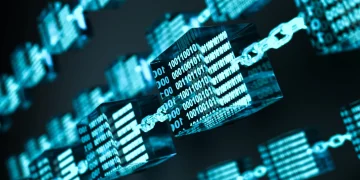By Maria Kalamatas | May 16, 2025
Frankfurt —
There’s no spotlight. No noise. But in logistics, something fundamental is changing—and it’s all about trust.
For years, blockchain was treated like a buzzword: abstract, expensive, overhyped. In 2025, it’s becoming invisible infrastructure. Not for show. For certainty.
“You don’t notice it when it works,” said a logistics manager in Germany. “You just stop chasing explanations.”
In critical sectors like pharmaceuticals, agri-food, and electronics, traceability is now non-negotiable. And blockchain’s real value isn’t in the technology—it’s in the audit trail no one can touch.
One batch of vaccine, tracked from a Belgian lab to a clinic in Nairobi, shows 13 location stamps, 4 temperature logs, and zero manual entries. Nothing overwritten. Nothing lost.
That’s not a theoretical benefit. It means fewer rejected shipments, faster border checks, and less friction between supplier and buyer.
The shift is happening quietly, but everywhere. A textile cooperative in Tunisia now uses blockchain to certify fiber origin for French retailers. In Peru, coffee exporters are logging crop data into decentralized ledgers before the beans leave the farm.
And it’s not the big players leading. It’s small-to-mid-sized firms looking for an edge—and finding it in clarity.
Customs in some ports now accept blockchain records as part of standard documentation. Banks use it to verify goods before releasing trade finance. And buyers are asking for it—not to seem innovative, but to be sure.
Yet the road isn’t smooth. Legacy systems aren’t always compatible. Some networks don’t talk to others. And most companies still need help to get started. But the trend is locked in.
In this new reality, transparency isn’t a gesture—it’s a condition of entry.
And for supply chains that used to rely on signatures and trust… now they have proof.





















